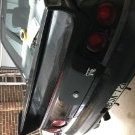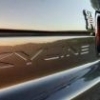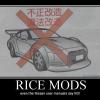Upgrading Discs
Announcements
-
Similar Content
-
Latest Posts
-
No, so what happened is. I put a bunch of filler then I sanded it all down, I removed all the filler (unintentionally), then I put the epoxy primer on because that section of the panel is bare metal. The car is parked outside so I needed to protect it in the meantime incase it rains.
-
It’s definitely an import, the Aussie ones have reflectors in the rear bar, it’s also a turbo which none of the Aussie one were. I remember back in the day I want a twin turbo z32 so bad and then I saw a 32 gtr and that was the end of that lol
-
Same can be said for Subarus motors ha ha! I like the 300ZX, I nearly bought a Z32 before I bought my first Skyline. It was going to be a project. Then I found out there was a bit of a dodgy title with it... As in, someone attempted to commit insurance fraud with it and there was now some dodgy legalities around it. So at 18 I walked away from it.
-
By GabsReDeal · Posted
The below is what the readings I had with the fuel pressure gauge which were correct. It seems like the issue is mainly during drive and not idle. I bought the new hanger hoping it could be the issue, perhaps I ruined something while cleaning, but I have not installed it yet since I have to wire up everything with the new plugs. -
By GoHashiriya · Posted
Actually, that's not entirely true. It's also the same motor in the 1st gen Nissan Cube but they're rare as hen's teeth.
-









Recommended Posts
Create an account or sign in to comment
You need to be a member in order to leave a comment
Create an account
Sign up for a new account in our community. It's easy!
Register a new accountSign in
Already have an account? Sign in here.
Sign In Now